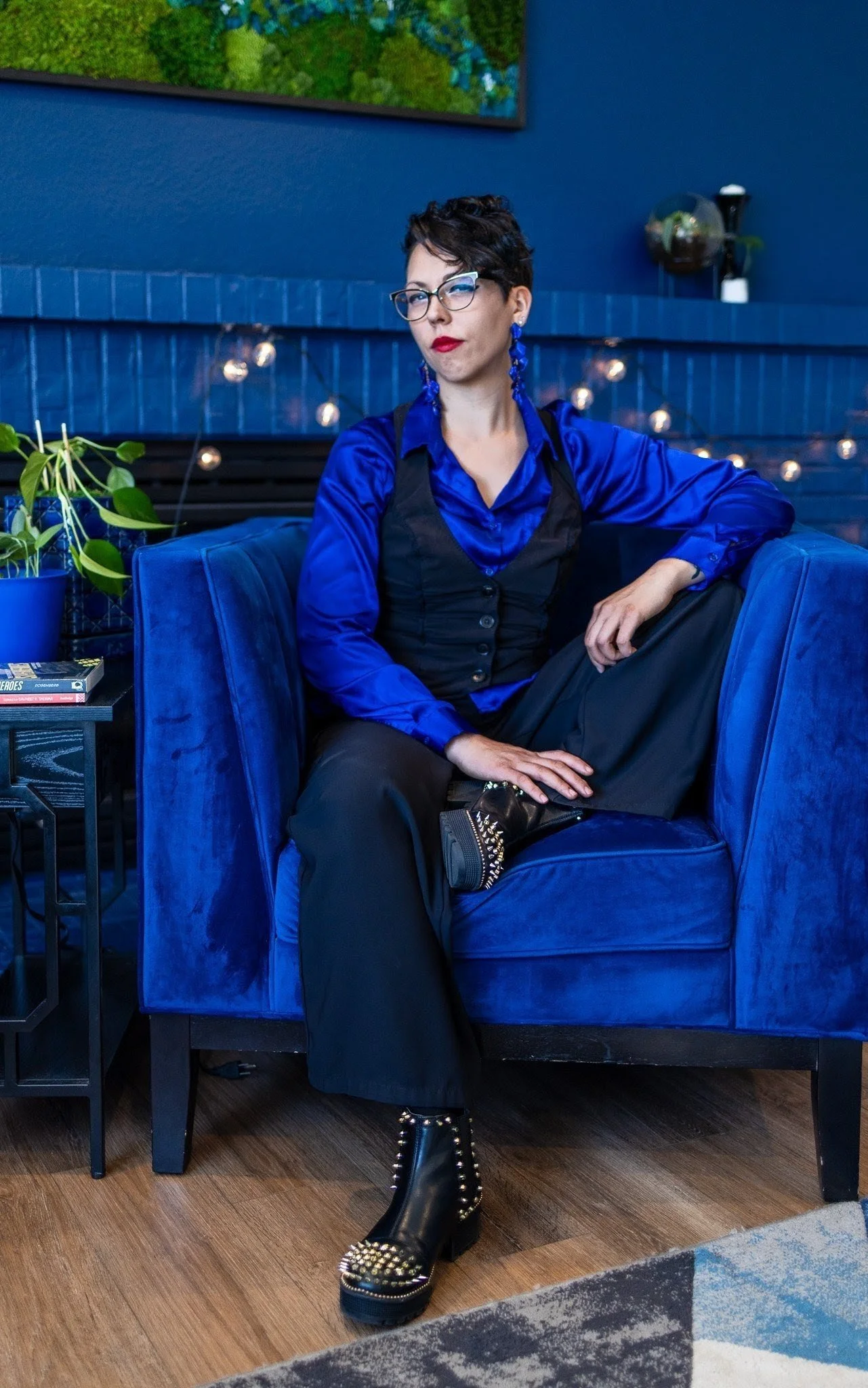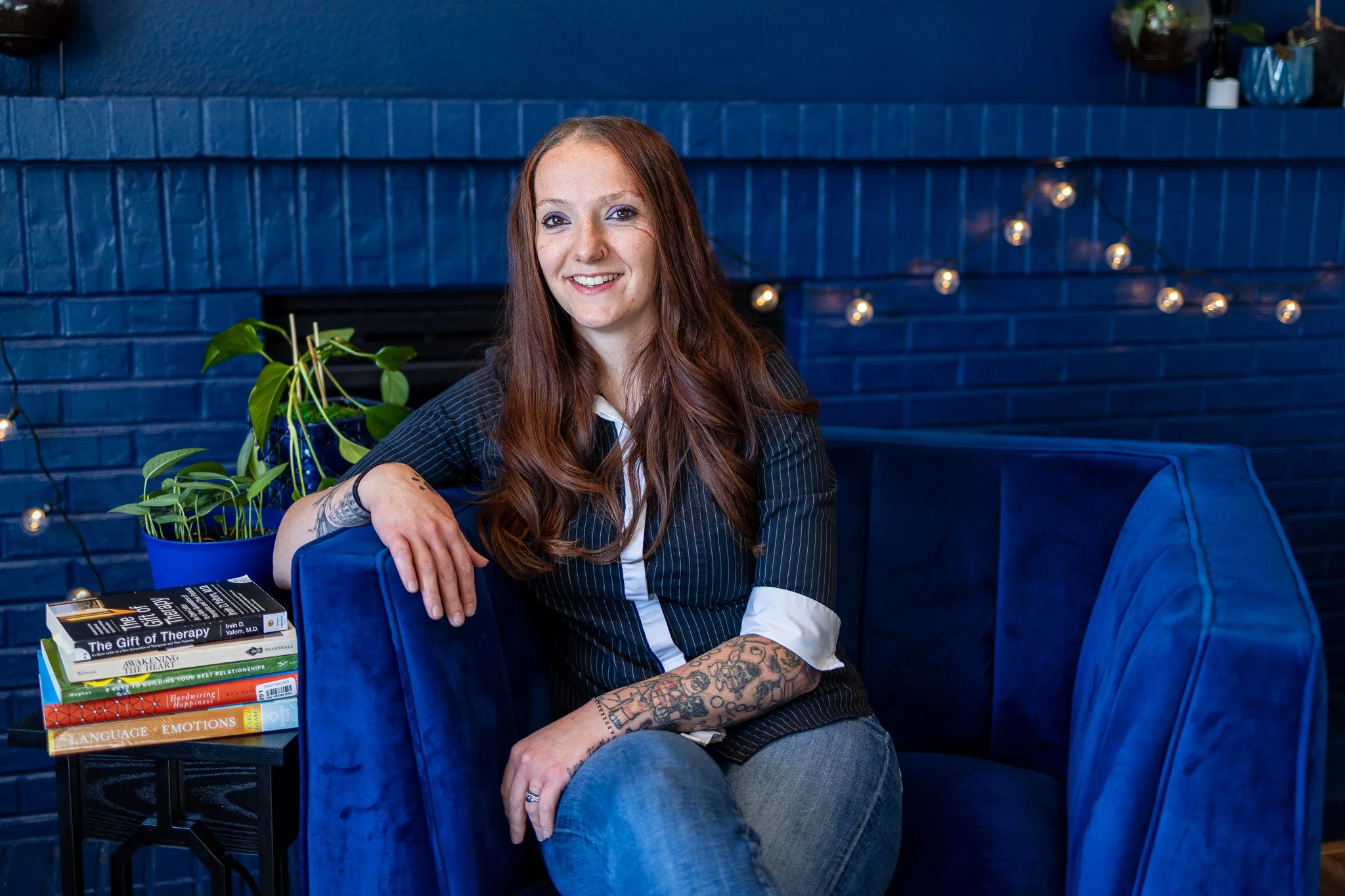Introducing the Bravery Initiative
"Bravery to Heal, Courage to Change, Strength to Break the Cycle."
Our Mission:
Our mission is to empower individuals to take brave accountability for their role in cycles of harm and commit to transformative change. We provide a supportive space that channels the powerful energy of new beginnings—amplifying courage, confidence, and intention to disrupt harmful patterns. By fostering emotional release and self-awareness, we guide clients toward healing and becoming their most authentic, fulfilled selves. Beyond individual work, we are dedicated to promoting systemic healing by offering trainings and presentations that engage community members and supervision teams. Together, we strive to break the cycle of harm at both personal and systemic levels, building healthier individuals, communities, and systems.
-
In Colorado, court-ordered treatment for sexual offense-specific and domestic violence cases is conducted in strict adherence to the guidelines established by the Sex Offender Management Board (SOMB) and the Domestic Violence Offender Management Board (DVOMB). Our program is designed to meet these standards by providing evidence-based, structured, and accountable therapeutic interventions that prioritize safety, accountability, and rehabilitation. We are committed to supporting clients through a respectful, culturally informed process that aligns with state requirements while promoting meaningful behavior change and community healing.
-
Disrupting cycles of harm is a vital component of effective therapeutic intervention. Research consistently shows that treating individuals who have caused harm, especially those court-ordered to therapy, is essential to reducing future incidents of abuse and promoting long-term healing within communities. Addressing the underlying behaviors, beliefs, and social influences that contribute to harmful actions helps break patterns that often perpetuate violence across generations. By fostering accountability, self-awareness, and healthier coping strategies, therapeutic approaches support individuals in transforming destructive behaviors, ultimately protecting potential victims and contributing to safer, more resilient communities.
-
This therapeutic practice prioritizes holistic, non-shamed-based care by separating harmful actions from the individual, reducing objectification, and treating each person with dignity and respect. To achieve this, it is essential to understand the cultural influences on choices and actions, fostering empathy that challenges individuals to grow not only in their thinking but also in their relationship with their emotions, body, and the world around them. The approach integrates evidence-based modalities including cognitive behavioral therapy, mindfulness and body-oriented therapies, art therapy, somatic work, restorative justice, social justice frameworks, emotion-focused, and humanistic therapies. Together, these modalities address the complex emotional, cognitive, and social factors involved in behavior change, supporting individuals to heal deeply, regulate emotions, and build healthier relationships within themselves and their communities.
-
Our therapeutic practice is deeply committed to challenging whitewashed wellness and heteronormativity in domestic violence and sexual offense-specific court-ordered treatment. This is a brave space where individuals are encouraged to confront their own biases, judgments, and internalized societal norms. Society often imposes double standards rooted in heteronormativity, portraying men primarily as perpetrators and women primarily as victims of sexual assault—a framework still dominant in much of the research and public discourse. However, effective therapy requires a commitment to tailoring treatment to the diverse identities of clients. It is vital to develop a nuanced understanding of how United States culture shapes clients’ experiences, recognizing that behaviors do not arise in a vacuum but are influenced by broader cultural, social, and systemic factors. Exploring with clients how they and their communities have been impacted by USA culture can foster insight and healing. While some themes may be common across cultures, appreciating the specific identifiers and influences of the USA culture in which clients live enhances therapeutic relevance and effectiveness. This culturally informed approach supports clients in navigating their world authentically and safely.
-
We are deeply committed to supporting the broader community involved in the supervision and rehabilitation process, including treatment providers, supervising officers, and victim representatives. To foster systemic healing and promote healthy change, we offer presentations, trainings, and wellness self-care experiential sessions designed to enhance collaboration, build capacity, and support the well-being of all stakeholders involved in court-ordered treatment. By engaging at this systemic level and incorporating diverse perspectives, we aim to create a more informed, compassionate network that contributes to sustained positive outcomes for clients, victims, and communities alike.
Meet the Team
-
Owner and Founder
SOMB Full Operating Treatment Provider, Evaluator, and Clinical SupervisorDVOMB Candidate
-
She believes that everyone has the capacity to cause harm, and the more this fact is denied, the greater the likelihood of harm occurring, whether intentionally or unintentionally. When harm happens, she recognizes that those affected cannot be expected to heal alone. Accountability is essential; those who cause harm must acknowledge the impact of their actions and actively work to prevent recurrence.
She understands that excluding individuals from their communities after poor decisions can hinder their ability to seek support and break harmful cycles. Her work is grounded in the belief that anyone can make mistakes. Sexual offending carries significant stigma and misconceptions, leading to condemnation and social exclusion. She sees that such responses reinforce harmful narratives rather than fostering dialogue and healing. It is the responsibility of those who cause harm to change their behavior, and society must shift its narratives toward prevention and transformation.
Her mission is to disrupt cycles of harm at individual, communal, and systemic levels to promote healing. By creating space within these cycles, she facilitates the emergence of new, healthy patterns and empowers change. She guides those who have harmed to deepen their self-awareness, understand the origins of their actions, and develop strategies to prevent future harm.
She upholds social and rehabilitative justice by examining social and cultural influences on decision-making and challenging harmful stigmas that lead to “othering.” Healing, in her view, involves balancing accountability with respect and non-shaming, while acknowledging that decisions are shaped by broader contexts. She supports individuals in reconnecting with their authentic selves by critically examining toxic beliefs, the impact of their actions, and aligning with their values. Therapy under her guidance fosters trust in innate wisdom for healing.
She is committed to integrating decolonization practices within therapeutic spaces. Continuously expanding her understanding of social justice, she builds community and provides training to mental health professionals to promote systemic healing. Since her internship in 2016, she has worked with adults from diverse backgrounds who are court-ordered to therapy for sexual offenses. Additionally, she addresses heteronormativity and whitewashed wellness in this field through presentations to the SOMB, including therapists and probation officers, emphasizing inclusive care for LGBTQIA+ and BIPOC populations.
She also employs creative methods such as storytelling, mythology, comics, and folklore to support internal healing processes. Through a transpersonal art therapy lens, she incorporates rituals like meditation, guided visualization, dream exploration, and art-making to enrich the therapeutic experience.
-
Therapist
SOMB Full Operating Treatment Provider and Evaluator
DVOMB Candidate
-
"When we are no longer able to change a situation, we are challenged to change ourselves." – Viktor Frankl
Georgie’s work is grounded in the belief that acknowledging and confronting difficult truths is the first step toward meaningful change. She understands that human behavior is complex and that good people can make harmful decisions. By helping her clients face these challenges with vulnerability, Georgie empowers them to break destructive cycles and recognize their inherent capacity for growth. In doing so, she creates a safe space where clients can explore their fears, mistakes, and unmet needs, helping them gain clarity and take ownership of their path forward.
Georgie’s goal is not only to guide her clients toward healing, but to equip them with the tools and insights necessary to make lasting, positive changes in their lives. Through a compassionate and non-judgmental approach, she fosters an environment where clients feel heard, understood, and capable of creating new patterns of thought and behavior. She graduated with a Master of Clinical Counseling from Regis University in December of 2021, following an associate degree in Criminal Justice. During her studies, Georgie became deeply interested in the intersection of mental health and criminal justice, recognizing how crucial the former is in addressing the root causes of harmful behavior.
Georgie takes an existential and holistic approach to therapy, viewing her clients as whole individuals rather than reducing them to a single issue. By helping clients connect with their deeper sense of meaning and purpose, she encourages them to develop a stronger sense of personal responsibility. This process of self-reflection not only helps them make better decisions, but also empowers them to build a life that aligns with their values and goals.


